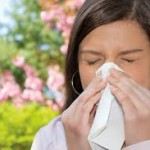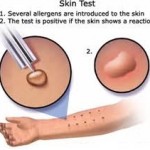Caffeine may be viewed as an energy source, a drug, or a social beverage. If you are like 90 percent of the American population, then you consume coffee on a regular basis according to nutrition author Daniel M. Korn. This may be in the form of coffee, tea, a carbonated soda or an energy drink. Even many prescription pills contain caffeine. What you may not realize is that some people are actually allergic to caffeine. As with any food allergy, an allergic reaction to caffeine can have devastating consequences.
Allergic Reaction
 An allergic reaction to caffeine occurs when your immune system malfunctions and falsely identifies the chemical as a dangerous substance to the body. This causes the production of antibodies (disease-fighting agents) into the bloodstream. The presence of allergy-related antibodies causes mast cells found in soft tissues to produce histamine. Histamine is a chemical that commonly fights off infection in the body, but during an allergic reaction it causes inflammation to occur. Most caffeine allergy symptoms are caused by the presence of increased histamine levels.
An allergic reaction to caffeine occurs when your immune system malfunctions and falsely identifies the chemical as a dangerous substance to the body. This causes the production of antibodies (disease-fighting agents) into the bloodstream. The presence of allergy-related antibodies causes mast cells found in soft tissues to produce histamine. Histamine is a chemical that commonly fights off infection in the body, but during an allergic reaction it causes inflammation to occur. Most caffeine allergy symptoms are caused by the presence of increased histamine levels.
Skin Rashes
If you have a mild allergy to caffeine, then drinking two to three cups of coffee will likely cause itching, followed by red, bumpy rashes or hives. This can evolve into urticaria, or raised linear streaks on the skin, which is a severe skin reaction that warrants a visit to your physician.
Migraine Headaches
Another sign that you are allergic to caffeine is the onset of headaches within minutes of consuming a caffeinated product such as a cola or coffee, according to MayoClinic.com. The headache is usually a migraine-type, meaning that you will feel a squeezing, throbbing pain in the frontal or temple areas of your head.
Heart Symptoms
If you have a severe caffeine allergy, then drinking coffee may cause heart-related symptoms, such as palpitations, a racing heartbeat, skipped beats or even severe chest pain. If you experience any of these symptoms, you should seek medical attention immediately. Caffeine has been known to cause both heart attacks and fatal rhythm disturbances of the heart, according to Dr. M.E. Cannon, who is an emergency medicine doctor in Western Australia.
Breathing Problems
 In case of caffeine allergy, you might experience respiratory symptoms, such as shortness of breath, coughing spells or wheezing, says MayoClinic.com. You should consult a doctor if you experience any of these symptoms.
In case of caffeine allergy, you might experience respiratory symptoms, such as shortness of breath, coughing spells or wheezing, says MayoClinic.com. You should consult a doctor if you experience any of these symptoms.
Anxiety Symptoms
If you ever drank too many cups of coffee, you have likely experienced symptoms of anxiety or jitteriness. If you are truly allergic to caffeine, however, even one cup of coffee may induce a severe panic attack, or lead to impulsive or even suicidal behavior.
Facial Swelling
Another sign of true caffeine allergy is the development of facial swelling. Within minutes of drinking caffeine, you may notice swelling of your tongue, lips or eyelids. You should seek medical attention right away if such symptoms occur.
Sinus Reactions
As histamine is released in the sinus cavity, you will develop nasal congestion, a runny nose and postnasal drip. Nasal congestion will cause pressure to build up throughout the head, which will lead to sinus headaches and facial tenderness. Sinus congestion is the result of inflammation and swelling in the sinus cavities. The swollen nasal passages trap excess mucus in the sinuses; if not treated, this can lead to a sinus infection. The most effective treatment for sinus reactions is to take an antihistamine and decongestant to alleviate sinus pressure and pain.
Digestive Reactions
Your digestive system can react within a few minutes of ingesting caffeine. Swelling in the lining of your intestines will cause nausea, vomiting, diarrhea, stomach pain, cramping, gas and bloating. Most digestive symptoms do not last long because they subside once the allergen is eliminated from the body. If you continue to vomit for more than one day or have diarrhea for more than three days, call your doctor. Blood in your stool or vomit is an alarming symptom that will require further evaluation.
Testing
 Your doctor will use different allergy tests to diagnose your condition. In order for you to have a genuine caffeine allergy, your body must create immunoglobulin E antibodies when caffeine is introduced into your body. The preliminary test uses a small amount of caffeine that is injected under the top layer of your skin. If the skin becomes irritated, swollen or red within 15 minutes, you most likely have an allergy to caffeine. The more conclusive test uses a sample of your blood to determine if IgE antibodies are produced when the lab introduces caffeine into the blood sample.
Your doctor will use different allergy tests to diagnose your condition. In order for you to have a genuine caffeine allergy, your body must create immunoglobulin E antibodies when caffeine is introduced into your body. The preliminary test uses a small amount of caffeine that is injected under the top layer of your skin. If the skin becomes irritated, swollen or red within 15 minutes, you most likely have an allergy to caffeine. The more conclusive test uses a sample of your blood to determine if IgE antibodies are produced when the lab introduces caffeine into the blood sample.
Precaution
If you’re diagnosed with a caffeine allergy you will need to use precautions to avoid consuming caffeine. Do not ingest any product that naturally contains caffeine, such as coffee, tea or soda. Products labeled caffeine-free do not contain any caffeine. Decaf is a reduction in the amount of caffeine in a beverage, not the removal. Caffeine may be found in decaffeinated coffee and tea.
